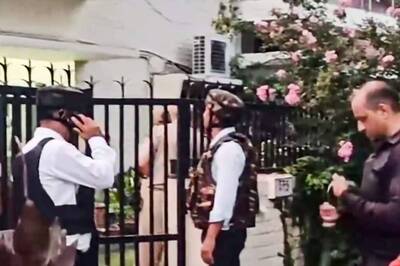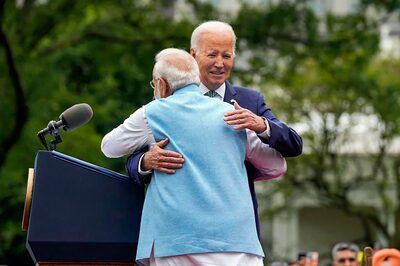
views
The Madras High Court on Friday imposed a punishment of 15 days’ simple imprisonment on retired IPS officer G Sampath Kumar in a contempt of court case filed by former Indian cricket team captain Mahendra Singh Dhoni.
A division bench comprising Justices S S Sundar and Sunder Mohan found Sampath Kumar guilty of committing criminal contempt.
“However, taking into consideration the credentials of the respondent (Sampath Kumar), as projected by him in his written statement as well in the reply affidavit, this court, showing lenience, restricts the punishment for a period of 15 days.”
“Even though a request is not received from the side of the respondent, this court is inclined to exercise its power under section 19 (3) of the Contempt of Courts Act and suspend the execution of punishment imposed on the respondent by this court, for a period of 30 days” (to enable him file an appeal).
In his contempt petition, Dhoni sought to punish Sampath Kumar for the remarks made by him against the judiciary in his written statement filed in response to a Rs 100 crore defamation suit. Dhoni had moved the court in 2014 against the former cop for having named the popular cricketer in the Indian Premier League (IPL) betting scam.
In its order, the bench said Sampath Kumar has consciously made an attempt to scandalise and to lower the authority of this court and the Supreme Court. It was established that an affidavit or any pleading that was presented by a party before the court was an act of publication.
Sampath Kumar, by his specific words, has attacked the judiciary indecently with an intention to scandalise and undermine the dignity and majesty of this court as well as the apex Court, the bench added. The court said when a general statement was made against it for granting interim order describing the order as an abuse of process of law, it was not a fair comment.
Similarly, accusing the Supreme Court that it failed to focus on “Rule of Law” cannot be accepted as a fair expression of grievance of a party to the lis, the bench added.
The bench said Sampath Kumar was a responsible police officer who had the occasion to investigate a crime. The freedom of speech and expression cannot be extended to undermine the statutory limits as contained in the Contempt of Courts Act. Since maintenance of dignity of courts was one of the cardinal principles of Rule of Law, any publication or a public speech which results in undermining it cannot be permitted, as held by the SC in several precedents, the bench added.
The judges said the Contempt of Courts Act has been enacted to secure public respect and confidence in the judiciary as an institution. If persons like Sampath Kumar were allowed to shake the confidence of the public in the impartial administration of justice, it should be treated as an attack on the judiciary.
“In the present case, we are convinced that the statements made by respondent in the additional written statement, is with an intention to scandalise this court, to lower its authority, and to destroy the confidence of people in the administration of justice. From the language and the context, this court has no hesitation to hold that the respondent wants to convey a message in the additional written statement that the high court as well as the Supreme Court, while passing orders, either do not follow Rule of Law or pass orders which are nothing but abuse of process of law”, the bench added.
It said what was more perturbing or surprising was the conduct of Sampath Kumar after the filing of contempt. He has filed a reply affidavit in this contempt petition. In that, he has not tendered any apology for the serious allegations he had made against this court and the remarks against the SC that it hears cases without focusing on the Rule of Law. Though in the opening paragraph, he has stated that he has high regards to the courts of law, institution of justice, and the judges, he has not expressed any remorse or tendered apology in the reply affidavit, the bench pointed out.




















Comments
0 comment